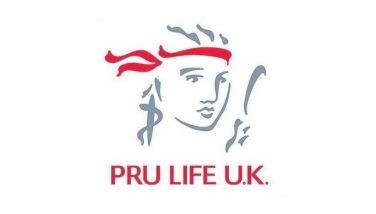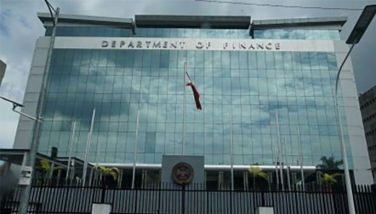PLDT wants to buy back Home Cable from Lopezes
December 22, 2005 | 12:00am
After failing in its bid to diversify into the direct-to-home (DTH) satellite television business, the Philippine Long Distance Telephone Co. (PLDT) is now attempting to buy back its cable TV business Home Cable which it earlier sold to the Lopez Group, STAR sources revealed.
The sources said PLDT chairman Manuel V. Pangilinan is trying to convince the Lopez group to allow him to regain control of Home Cable, PLDT’s cable TV company whose assets were earlier sold to Central CATV Inc. which owns and operates Sky Cable of the Lopez Group.
However, the Lopezes are reportedly not keen on returning Home Cable to PLDT. The latter sold Home Cable in exchange for shares in Central CATV as a result of which PLDT owns less than 10 percent and the Lopez Group, the balance.
Previous to the sale, the Lopez Group and PLDT merged Sky Cable and Home Cable to form Beyond Cable, a holding company owned 66.66 percent by the Lopezes and 33.33 percent by the PLDT Group. As a condition for the restructuring of a combined P2.5-billion indebtedness of the two cable TV companies, another Lopez-controlled company ABS-CBN Broadcasting secured a loan, part of which was in turn lent to Beyond Cable. PLDT was given an opportunity to retain its 33.33 percent stake by paying off part of the debt, but since the telecom giant at that time was losing interest in the cable TV business, it failed to exercise the right, resulting in a dilution of its stake to less than 10 percent and in the Lopezes gaining an overwhelming majority.
Through some corporate restructuring, the idea of Beyond Cable was scrapped and Central CATV became the holding company for the Lopez and PLDT stakes.
Pangilinan earlier explained that he wanted to venture into the direct-to-home satellite TV business and be the controlling majority and has lost interest in the cable TV business where PLDT is a minority stakeholder.
PLDT entered into an $85-million joint venture agreement with US DTH giant Echostar Communications to offer DTH in the local market. But key to entering the DTH business was acquiring Philippine Multi-Media System Inc. (PMMSI) (operator of Dream Satellite) owned by businessman Antonio ‘Tonyboy’ Cojuangco. PLDT would not only be able to acquire an existing DTH license but would also be able to buy out competition if it succeeded in purchasing Dream.
However, Cojuangco was asking for $56 million for PMMSI while PLDT was only willing to pal $22 million. Pangilinan said PMMSI was overpriced and his group was no longer willing to overpay for any acquisition no matter how important it is.
The PLDT chief executive also noted that PMMSI was not worth that much and Cojuangco’s price tag only goes to show that he was not really keen on selling.
Aside from returning to the cable TV business, PLDT is also considering going into the IPTV (Internet television) business which is considered the active element of ‘triple play,’ the current byword in the telecommunications industry that combines voice, video, and data into a single package.
The Lopez Group is already into IPTV, utilizing its telecommunications company BayanTel and its cable TV business as a platform to offer voice, video, and data.
Sources say that by reacquiring its cable TV business, PLDT would have access to content, a key element to the success of IPTV. PLDT officials revealed they plan to test IPTV by the middle of next year and will either license or produce the content themselves.
The sources said PLDT chairman Manuel V. Pangilinan is trying to convince the Lopez group to allow him to regain control of Home Cable, PLDT’s cable TV company whose assets were earlier sold to Central CATV Inc. which owns and operates Sky Cable of the Lopez Group.
However, the Lopezes are reportedly not keen on returning Home Cable to PLDT. The latter sold Home Cable in exchange for shares in Central CATV as a result of which PLDT owns less than 10 percent and the Lopez Group, the balance.
Previous to the sale, the Lopez Group and PLDT merged Sky Cable and Home Cable to form Beyond Cable, a holding company owned 66.66 percent by the Lopezes and 33.33 percent by the PLDT Group. As a condition for the restructuring of a combined P2.5-billion indebtedness of the two cable TV companies, another Lopez-controlled company ABS-CBN Broadcasting secured a loan, part of which was in turn lent to Beyond Cable. PLDT was given an opportunity to retain its 33.33 percent stake by paying off part of the debt, but since the telecom giant at that time was losing interest in the cable TV business, it failed to exercise the right, resulting in a dilution of its stake to less than 10 percent and in the Lopezes gaining an overwhelming majority.
Through some corporate restructuring, the idea of Beyond Cable was scrapped and Central CATV became the holding company for the Lopez and PLDT stakes.
Pangilinan earlier explained that he wanted to venture into the direct-to-home satellite TV business and be the controlling majority and has lost interest in the cable TV business where PLDT is a minority stakeholder.
PLDT entered into an $85-million joint venture agreement with US DTH giant Echostar Communications to offer DTH in the local market. But key to entering the DTH business was acquiring Philippine Multi-Media System Inc. (PMMSI) (operator of Dream Satellite) owned by businessman Antonio ‘Tonyboy’ Cojuangco. PLDT would not only be able to acquire an existing DTH license but would also be able to buy out competition if it succeeded in purchasing Dream.
However, Cojuangco was asking for $56 million for PMMSI while PLDT was only willing to pal $22 million. Pangilinan said PMMSI was overpriced and his group was no longer willing to overpay for any acquisition no matter how important it is.
The PLDT chief executive also noted that PMMSI was not worth that much and Cojuangco’s price tag only goes to show that he was not really keen on selling.
Aside from returning to the cable TV business, PLDT is also considering going into the IPTV (Internet television) business which is considered the active element of ‘triple play,’ the current byword in the telecommunications industry that combines voice, video, and data into a single package.
The Lopez Group is already into IPTV, utilizing its telecommunications company BayanTel and its cable TV business as a platform to offer voice, video, and data.
Sources say that by reacquiring its cable TV business, PLDT would have access to content, a key element to the success of IPTV. PLDT officials revealed they plan to test IPTV by the middle of next year and will either license or produce the content themselves.
BrandSpace Articles
<
>
- Latest
- Trending
Trending
Latest
Trending
Latest
Recommended





























